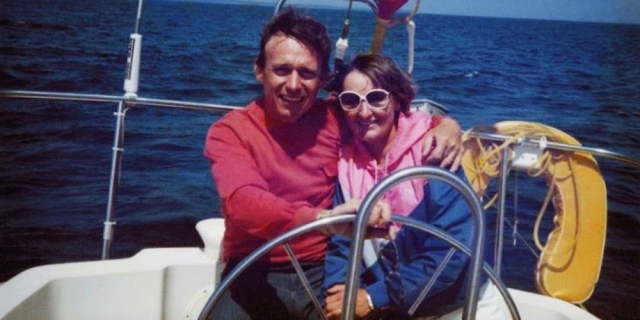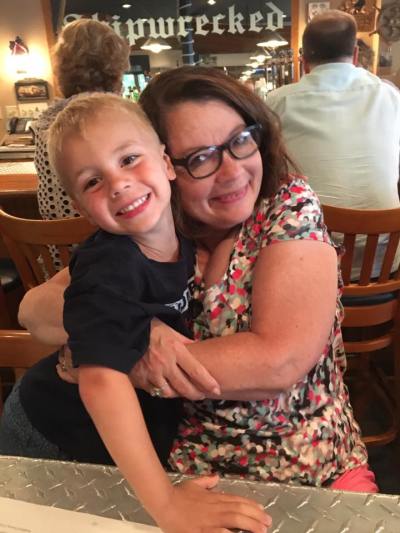 Too many Valentine’s Days will be spent like Elaine and Marty Schreiber’s. Marty will bring Elaine flowers. He also brings them other days, too, because she loves them. The Schreibers might dance, because Elaine loves to move to the music of her youth, and Marty likes the moments of joy that it brings to his wife of 55 years.
Too many Valentine’s Days will be spent like Elaine and Marty Schreiber’s. Marty will bring Elaine flowers. He also brings them other days, too, because she loves them. The Schreibers might dance, because Elaine loves to move to the music of her youth, and Marty likes the moments of joy that it brings to his wife of 55 years.
There’s one major difference in today’s Valentine’s Day celebrations than all those years ago when they met in high school, however. Sometimes Elaine doesn’t know that Marty is her husband. Diagnosed with Alzheimer’s disease nearly 12 years ago, Wisconsin’s former First Lady and her husband, the former Governor, live differently than they imagined they would at this stage of their lives. They were an active couple that enjoyed their four children and grandchildren. They biked, boated and entertained. Early in their marriage, Elaine helped Marty get elected to everything from class president to lieutenant governor, and in campaigns for other offices. Win or lose, she remained by his side. Marty said Elaine never let him feel defeated.
The Schreiber’s love story is chronicled in a book that Marty, along with co-author Cathy Breitenbucher, wrote as a guide for caregivers. My Two Elaines; Learning, Coping and Surviving as an Alzheimer’s Caregiver (Book Publishers Network), is as much a diary with raw feelings and humorous anecdotes as it a frank chat with caregivers and individuals who may be in the early stages of the disease.
In a loving, yet frightening paragraph from the book, Marty Schreiber wrote, “With my first Elaine, we shared love, hope, happiness and dreams. As my first Elaine became my second, the dreams turned into nightmares because I was losing her. Happiness becomes hopelessness. Grieving and health issues, including depression and anxiety, replaced joy.”
“I greatly miss my first Elaine,” he said. “My heart broke as she left me. It was so painful as this ‘new normal’ enveloped us with Alzheimer’s destroying the memories we created over the decades.”
Marty Schreiber says he unequivocally loves Elaine, but in a different way now. He says he still wants to make her happy, even when she gets confused, anxious or simply doesn’t remember things that many of us take for granted. “As your spouse’s Alzheimer’s progresses, you will face conversations that simply break your heart,” Shreiber said. “You can’t take it personally when your loved one can’t remember names and events. We share unexpected moments of joy when we dance, talk about whether her father approves of me (he’s been gone several years) or tells me she’s starting to love me more than her husband (what a guy he must be!), yet I wish I gave her many more of those moments early on. I failed to realize early enough that I had to enter her world. I hope others that endure this horrible disease learn from the mistakes I made.”
Marty Schreiber has mostly made peace with the situation. He realized after 10 years he could not care for Elaine by himself. She now lives and is surrounded by educated and experienced long-term care professionals. He visits most every day and cherishes the hours they have – and had – together.
Elaine Schreiber won’t know Valentine’s Day from Christmas or July 4th, but the former first couples’ love endures. Simply in a different way than how it blossomed and grew all those many years ago.
Learn more about the book My Two Elaines; Learning Coping and Surviving as an Alzheimer’s Caregiver here

(Marty and Elaine sailing in 1985)



 Too many Valentine’s Days will be spent like Elaine and Marty Schreiber’s. Marty will bring Elaine flowers. He also brings them other days, too, because she loves them. The Schreibers might dance, because Elaine loves to move to the music of her youth, and Marty likes the moments of joy that it brings to his wife of 55 years.
Too many Valentine’s Days will be spent like Elaine and Marty Schreiber’s. Marty will bring Elaine flowers. He also brings them other days, too, because she loves them. The Schreibers might dance, because Elaine loves to move to the music of her youth, and Marty likes the moments of joy that it brings to his wife of 55 years.




